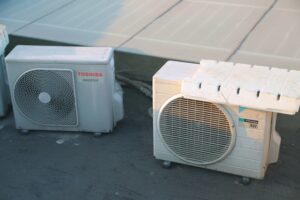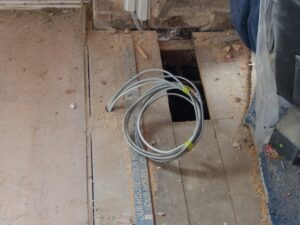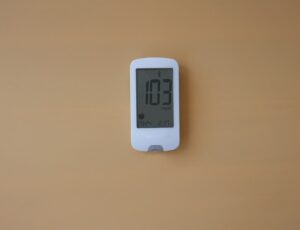If you’re experiencing issues with hard water in your home or business, you may need to consider water softener repairs. Hard water can cause a variety of problems, including damage to pipes and appliances, as well as skin irritation and dryness. Here at Excel Mechanical, we offer reliable HVAC and plumbing services, including water softener repairs, to help you maintain a comfortable and healthy environment.
We know there are some jobs people like to tackle themselves, and some jobs you’ll need to call in the experts for. We’re here to give you advice on tackling repairs and plumbing systems whilst keeping our books open to come and help you out when you need. Whether you need a simple repair or a complete replacement, you can count on us to get the job done right the first time.
Understanding Water Softeners
If you have hard water, you may be considering a water softener to improve the quality of your water. Understanding how water softeners work and their components is important for making an informed decision.
Components of a Water Softener
A water softener has two main tanks: a resin tank and a brine tank. The resin tank contains resin beads, which are negatively charged. The brine tank contains salt water, which is used to recharge the resin beads.
How Water Softeners Work
When hard water enters the resin tank, the positively charged minerals in the water, such as calcium and magnesium, are attracted to the negatively charged resin beads. The minerals then stick to the resin beads, removing them from the water. The water that exits the resin tank is now soft and free of hard minerals.
To recharge the resin beads, the water softener uses a process called ion exchange. The brine tank contains a high concentration of sodium ions, which are positively charged. When the brine is flushed through the resin tank, the sodium ions replace the hard minerals on the resin beads. The hard minerals are then flushed out of the system.
Common Water Softener Problems
If you have a water softener, you may experience some common problems. Here are some of the most common water softener problems and how to troubleshoot them.
Salt Bridges and Blockages
One of the most common water softener problems is salt bridges and blockages. This occurs when the salt in the brine tank clumps together and forms a hard crust, preventing water from flowing through the tank properly. To fix this problem, you can use a broom handle or similar tool to break up the salt bridge. You may also need to clean the brine tank and add new salt.
Resin Bed Issues
Resin bed issues can also cause problems with your water softener. Over time, the resin bed can become fouled with iron, sediment, and other debris, which can reduce the effectiveness of the softener. To fix this problem, you may need to clean the resin bed or replace the resin altogether.
Malfunctioning Control Valves
Another common water softener problem is malfunctioning control valves. These valves control the flow of water through the softener and can become clogged or damaged over time. To fix this problem, you may need to replace the control valve or clean it thoroughly. If you’re not comfortable doing this yourself, get in touch.
Repairing Your Water Softener
If you are experiencing problems with your water softener, it may be time for repairs. Fortunately, many repairs can be done on your own without the need for a professional plumber. However, in some cases, it may be best to call in an expert. Here are some tips for repairing your water softener.
DIY Repairs and Maintenance
Before calling a professional, there are some maintenance tasks you can perform on your own. These include checking for salt bridges, cleaning the brine tank, and checking for leaks. You can also perform a manual regeneration to help your system function more efficiently.
If you are experiencing more serious issues, such as resin replacement, it may be best to call in a professional. Attempting to do this on your own can be difficult and may cause further damage to your system.
When to Call a Professional Plumber
If you are experiencing leaks or other serious issues with your water softener, it may be time to call in a professional plumber. They can diagnose the issue and provide the necessary repairs to get your system functioning properly again.
Preventative Maintenance for Water Softeners
Water softeners require regular maintenance to function efficiently and extend their lifespan. By following a few simple steps, you can prevent costly repairs and ensure that your water softener is always working at its best. In this section, we will cover two essential aspects of preventative maintenance for water softeners: regular cleaning and recharging, and avoiding common issues.
Regular Cleaning and Recharging
Cleaning and recharging your water softener is essential to ensure that it continues to function correctly. Over time, the resin bed inside the water softener can become coated with minerals, reducing its ability to remove hardness from the water. To avoid this, you should clean and recharge your water softener regularly.
To clean your water softener, you should start by turning off the water supply and unplugging the unit. Next, remove the brine tank and empty any remaining salt. Clean the tank thoroughly with warm water and a mild detergent, then rinse it thoroughly and allow it to dry.
Once the tank is clean, you should check the resin bed for any signs of damage or wear. If you notice any issues, it may be time to replace the resin bed. If the resin bed is in good condition, you can recharge the unit by adding fresh salt to the brine tank and turning the water supply back on.
Avoiding Common Issues
There are several common issues that can affect the performance of your water softener. One of the most common issues is a salt bridge, which occurs when a hard crust forms in the brine tank, preventing the salt from dissolving. To avoid this issue, you should check the brine tank regularly and break up any salt bridges that you find.
Another common issue is the buildup of chlorine in the resin bed. Chlorine can damage the resin bed, reducing its ability to remove hardness from the water. To avoid this issue, you should use a chlorine removal system or add a chlorine filter to your water softener.
Cost Considerations for Repairs and Maintenance
When it comes to water softener repairs and maintenance, cost is a significant consideration. The cost of repairs and maintenance can vary widely depending on the type of repair needed, the size of the system, and the service provider.
For example, according to Home Guide, water softener repair costs can range from $150 to $600 on average. A service call and inspection can cost between $40 to $100, not including repair parts. On the other hand, an all-inclusive maintenance contract can cost $100 to $250 per year and covers repairs, cleaning, salt refills, water testing, and annual inspections.
The cost of repairs and maintenance can vary significantly depending on the service provider. That’s why you should choose a reliable and experienced plumbing service provider like us. Our team strives for exceptional quality and great value in both residential and commercial services. We work to provide the best possible system to meet individual needs and budget.
In addition to cost, it’s essential to consider the frequency of maintenance tasks. Regular maintenance can help prevent costly repairs and keep your water softener system running efficiently.




